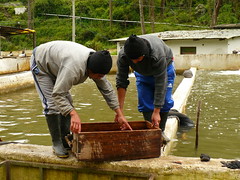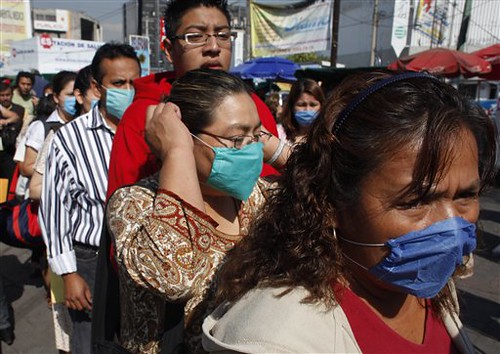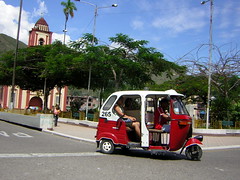A Peruvian’s view on the problem of corruption [Featured]
This excellent article was written by Mildemonios for the blog Economía de los mil Demonios. The following is a translation, a makes a very interesting read.
Corruption makes us all angry, except for the corrupt of course. Just a couple of months ago the Institute of Public Opinion of the PUCP (large university) published the results of a survey focussed on corruption. There on page 4 you can see clearly that 94% of those surveyed, pretty much everyone, considered corruption in Peru to be a grave problem. But just two pages later is the data that worried me. Just 22% considered it important that in the fight against corruption we need the participation of the general public. And well, this is why we’re screwed.
As stated by someone who commented on these results, we all value our own dignity differently. And this is not measured in money. That a person in a moment of difficulty and dire need sells himself for whatever amount, while another that is in no particular extreme situation sells their honour for that same amount doesn’t mean both parties are equally corrupt. Sure, each should be classified as immoral. But this inmorality has levels. This is not measured in money.
After all, as this commentator went on to explain, the difference is if someone ends up corrupting themselves when they arrive to a position of power and if this comes from what they experienced beforehand. Rather, the general public today, without power, have a distinct predisposition to be corrupt in many ways. For this it’s important that we educate and reflect now, for example.
If we look at the corruption index of Transparency International it is enough to make you cry. Peru is found in 75th place between two countries with strong traditions of political immorality that I won’t mention for fear of offending someone. Now look at these figures, look at them as a story in three acts:
First Act, the question is if at any time a public official has asked you for a bribe. 95% say no, and 5% say yes. It doesn’t seem like much, but according to the last census, we’re talking about 1.4 million Peruvians. What happens with this 5%?
Second Act, to these people the question is what they did about it. As many as 55% gave in a paid the bribe. We’ll, you see? This is the problem. Corrupt public officials that ask for bribes exist because 55% of the public are happy to pay them. Just with this figure we’re in trouble, not just in trouble, but in abysmal shape. What’s missing is to inform people of the direct relation between this and the corruption at the highest level. It’s because of this that when one of these 55%, let’s say… becomes a congressperson, they don’t see anything wrong in stealing electricity from a clandestine connection or shooting their neighbour’s dog. [Yes, this is what most of Peru’s congresspeople spend their time doing]
But wait, there’s more.
Third act, they asked you for a bribe, and maybe you paid it, maybe you didn’t. How many of those asked actually went to report it to authorities? The answer is a depressing and pathetic 8%. Well there you go. While this 8% doesn’t grow to become overwhelming, we’re screwed. Nothing more to say.
Importantly, this number is probably so low because of the mechanisms for resolving cases of corruption are sometimes ineffective. I say this from my own experience. I recently made a complaint against an act of corruption in an association I am a member of, and this institution, despite existing for almost 100 years, simply didn’t have the mechanisms in place to resolve the complaint. It was never resolved. In fact, those in charge have such a low level of competence that I never even received official acknowledgement of my complaint, despite having insisted they act so frequently that I was sanctioned for being insurgent. That’s right, they ended up taking action against me for insisting they do something about an act of corruption, despite having all the documentation and proof needed to back up my case. But those who I complain about are untouched because this institution is designed in this way. And it’s like this that corruption and immorality is fomented.
We are only 0.4% of the population that report acts of corruption, and while we remain such a small group the corrupt can relax in their positions of power, continuing with their bad practices. While that 0.4% doesn’t grow, there’s little we can do.
Tags: bribes, census, corruption, PUCP, survey, [Featured]










